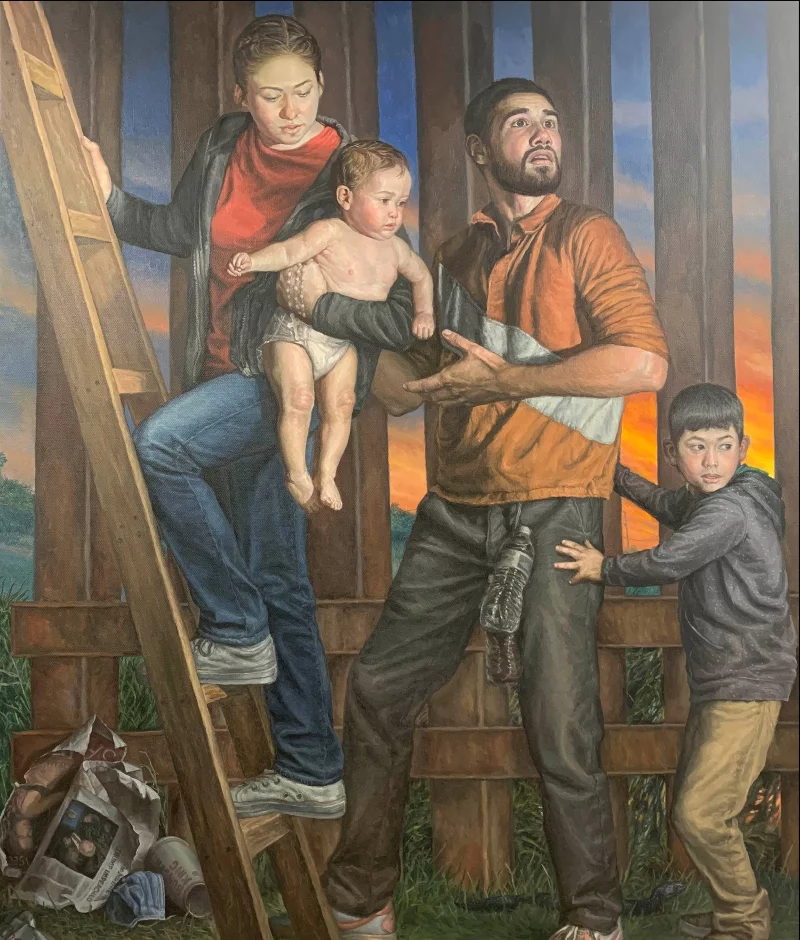Privilege, Power, and Difference by Allan Johnson
Reflection:
At the risk of being immediately alienating by bringing up politics, this was an interesting piece to read in our current political climate. Johnson's discussion as to why it is important to name systemic issues in particular seems very pertinent at the moment. To those os us who belong to groups traditionally in power (in my case, White and middle-class), actually tackling these issues can be scary. So we find it easier to sweep them under the rug or demonize discussing the problems themselves. An article from the White House, for example, lists pieces of art highlighting diversity, from writings to paintings to entire exhibits, as anti-American propaganda. When the terms themselves become taboo, the ideas they represent are pushed to the side. Then, of course, resistance to changing the status quo dwindles, and those of us with privilege can continue to have it.
I am also intrigued by a minor point Johnson brings up, namely that privilege and oppression are experienced by individuals in varying ways. As someone who belongs to both privileged and oppressed groups, I have had plenty of experiences with both statuses. For example, I am well aware that my white privilege has allowed me a life with little serious scrutiny of my behavior. Yet, I have been on the receiving end of both misogynistic and anti-semitic remarks. Even then, though, I would consider the severity of my experiences to be less than the examples Johnson cites. I have never been in a situation where being alone could endanger my safety. Similarly, I have never been harassed for my Jewish background beyond a few immature jokes. In these cases, I have always wondered why that is. Could it be, as Johnson suggests, that it is just the confluence of multiple variables in my life? Or is it that the privileges I do have have eased any oppression I face? Especially as a future educator who will work with students with various combinations of statuses, I think considering how they all influence each other is worthwhile.
Comments to Share:
Something I would like to discuss in class is how these statuses overlap, particularly which ones we as a culture consider to be most important. The text itself goes into length about race, for example, but I am curious to what extent the other aspects of diversity are considered. Are we more likely to care if a person is disabled or LGBTQ, for example? I am not suggesting by any means that judging others for how they appear in the diversity wheel is appropriate, but it is a reality. Especially if we aspire to be educators in the future, we will need to understand how these statuses affect people, so we can understand and possibly mitigate the effects they have on our students.



The word you are looking for is "intersectionality" -- the way your identity categories overlap and intersect. Great point.
ReplyDeleteEmily, I admire how you related the reading to our current political climate so gracefully. I find it very depressing that our current administration thinks that this painting and others like it are "anti-American."
ReplyDeleteHello Emily, as I was reading this, I felt touched. I had not yet heard about our political climate in college and that astounds me. Yet, you related the article to an important topic that should be talked about. I think that is exactly what Johnson's point is! Bringing to light topics that may be uncomfortable, but the only way to figure things out is to shed light to them. In short, thank you for sharing your point.
ReplyDeleteHey Emily, I actually really like the photo that you chose to insert! I really feel like art can speak thousands of words. Great choice!
ReplyDeleteHey emily, i really love your comments to share section and how you brought up aspects that the book itself didnt necessarily dive into, and how you connected these points to you yourself, and us as future educators of some kind.
ReplyDelete